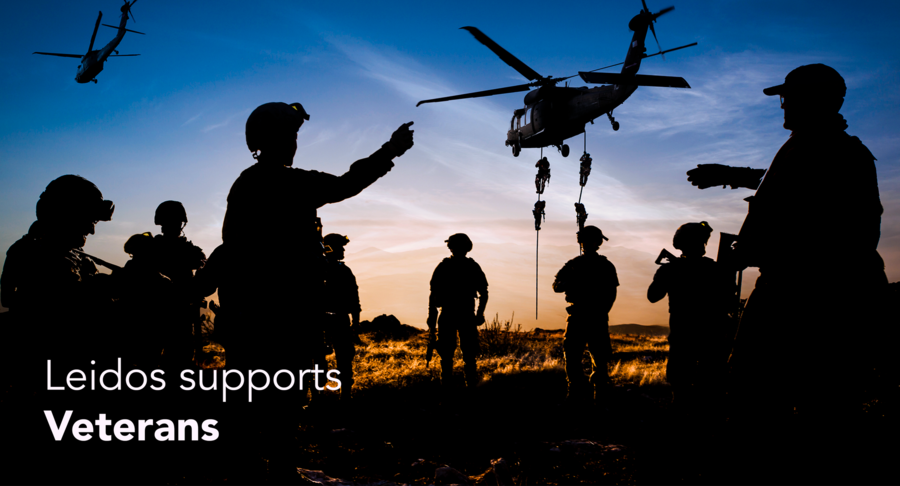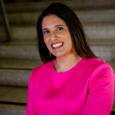How the Disabled Veteran's Scholarship Fund helps former military personnel re-skill themselves for a brighter future
From the age of 16 up to his 40th birthday, the Army was John Owen's life. Over 24 years, he went from serving as one of the youngest soldiers in the first Gulf War to a role at the Army's Specialist Weapons School, where he began training the next generation of recruits.
Then a series of strokes brought John's military career to a sudden, unexpected end.
"I had to be medically discharged from the Army, which was a massive blow," he describes. "I was at the pinnacle of my career, and now my whole world was collapsing around me. I wasn't sure what my future might hold and didn't know what I was going to do."
When his resettlement officer introduced the idea of studying at the Open University (OU), John thought it was a pipe dream for someone like himself with no prior academic qualifications. But "with nothing to lose," he applied for The Disabled Veteran's Scholarship Fund (DVSF) and was offered a fully funded place on a bachelor's degree programme in Sport, Fitness and Coaching.
Since 2019, Leidos has supported the DVSF, enabling over 250 disabled former military personnel to up-skill themselves via a full university degree with the OU. In addition to covering all fees, the DVSF also provides a tailored package of disability support and career guidance to help students turn their new skills into a brighter future.
Studying for a degree as a mature student while simultaneously juggling family and employment responsibilities, on top of the challenges posed by mental or physical health issues, can be a huge challenge. Yet, as former Royal Air Force avionics technician Sarah describes, knowing that she has the support of all of the donors to the DVSF is enough to help her get through even the toughest parts of her postgraduate degree in human resources management.

Having someone else believe in you so much that they back you is such a confidence boost. That is what keeps me going, even when I'm doing an assignment or exam.
Sarah
Student, The Open University
For those like John who have never previously worked outside the military, that support is essential in helping them to re-skill for a new role in the civilian world. But employability is not the only challenge faced by former service personnel, many of whom suffer from mental health issues following the stress of years on the frontlines of war.
"In many ways, my OU studies are therapy to me," says Kate Moth, who suffered from anxiety, depression, and PTSD after 18 years as an Army nurse. "They keep my mind busy and give me a fresh focus and purpose. I'm not on meds anymore, but I still need to keep my brain active; otherwise, I tend to start remembering things I'd rather not."
For Andrew Fenwick-Green, who suffered severe mental and physical trauma after breaking his back while serving in the Army, studying with the OU has helped him to feel like there is still a role for him in the workforce.

I'm in my mid-40s and I've still got 15 to 20 years ahead of me to seek employment opportunities. The DVSF has offered me, and the other veterans, access to education that we wouldn't get otherwise, and it's an absolute godsend.
Andrew Fenwick-Green
Student, The Open University
Beyond the support and opportunities that studying with the OU offers veterans, for many, it represents a chance to help themselves and continue to help others.
"I really enjoy history, so my goal is to study towards becoming a history teacher," explains Army veteran Stuart Lawson. "It's a big goal, but I know I can do it. I want to send a huge thank you to the OU's alumni and donors for giving me a chance to not just change my own life but also to help educate and inspire my pupils of the future."
For Steven Wilson, who experienced mental health issues and homelessness after being seriously wounded during a rescue operation in Sierra Leone, his degree in Health and Social Care will give him the chance to directly build upon his own experience of disability to support others in a similar position. "I have always felt good when helping others and taken a sense of pride in doing so," Steven says.

The DVSF has given me a chance for a fresh start and hopefully a new career doing something worthwhile. It gives others a light at the end of the tunnel, the chance to retrain for a job that brings meaning and a sense of purpose back to their lives.
Steven Wilson
Student, The Open University
Diversity and inclusion is a core element of Leidos’ employee value proposition — the company has been recognised by several organisations for being among the "Best Employers for Veterans."
For more information on our Operation Military Veteran Program, visit: www.leidos.com/operation-mvp





